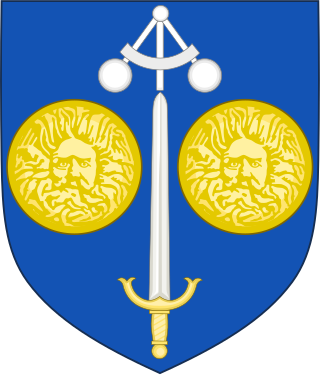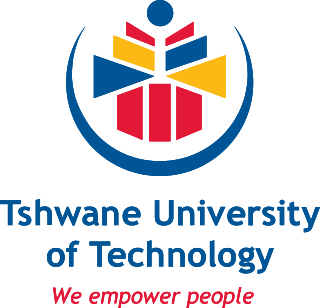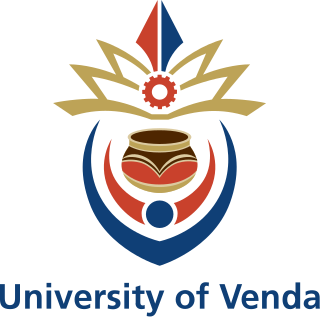Related Research Articles

The University of Bath is a public research university in Bath, England. It received its royal charter in 1966, along with a number of other institutions following the Robbins Report. Like the University of Bristol and University of the West of England, Bath can trace its roots to the Merchant Venturers' Technical College, established in Bristol as a school in 1595 by the Society of Merchant Venturers. The university's main campus is located on Claverton Down, a site overlooking the UNESCO World Heritage city of Bath, and was purpose-built, constructed from 1964 in the modernist style of the times.

Loughborough University is a public research university in the market town of Loughborough, Leicestershire, England. It has been a university since 1966, but it dates back to 1909, when Loughborough Technical Institute began with a focus on skills directly applicable in the wider world. In March 2013, the university announced it had bought the former broadcast centre at the Queen Elizabeth Olympic Park as a second campus. The annual income of the institution for 2022–23 was £369.1 million, of which £48.3 million was from research grants and contracts, with an expenditure of £339.1 million.

The University of Cape Town (UCT)(Afrikaans: Universiteit van Kaapstad, Xhosa: iYunivesithi yaseKapa) is a public research university in Cape Town, South Africa. Established in 1829 as the South African College, it was granted full university status in 1918, making it the oldest university in South Africa and the oldest university in Sub-Saharan Africa in continuous operation.

The University of KwaZulu-Natal is a university with five campuses in the province of KwaZulu-Natal in South Africa. It was formed on 1 January 2004 after the merger between the University of Natal and the University of Durban-Westville.

Glasgow Caledonian University, informally GCU, Caledonian or Caley, is a public university in Glasgow, Scotland. It was formed in 1993 by the merger of The Queen's College, Glasgow and Glasgow Polytechnic. It is located in the Cowcaddens district, just to the immediate north of the city centre, and is Glasgow's third university, after the University of Glasgow and the University of Strathclyde.

Stellenbosch University (SU) (Afrikaans: Universiteit Stellenbosch, Xhosa: iYunivesithi yaseStellenbosch) is a public research university situated in Stellenbosch, a town in the Western Cape province of South Africa. Stellenbosch is the oldest university in South Africa and the oldest extant university in Sub-Saharan Africa, which received full university status in 1918. Stellenbosch University designed and manufactured Africa's first microsatellite, SUNSAT, launched in 1999.

Tshwane University of Technology is a higher education institution in South Africa that came into being through a merger of three technikons — Technikon Northern Gauteng, Technikon North-West and Technikon Pretoria.

The University of the Free State is a multi-campus public university in Bloemfontein, the capital of the Free State and the judicial capital of South Africa. It was first established as an institution of higher learning in 1904 as a tertiary section of Grey College. It was declared an independent Afrikaans-language university in 1950 and the name was changed to the University of the Orange Free State. The university has two satellite campuses. Initially a whites-only precinct, the university was fully de-segregated in 1996. The first black university vice-chancellor was appointed in 2010.

The University of Venda is a South African comprehensive rural-based institution, located in Thohoyandou in Limpopo province. It was established in 1981 under the then Republic of Venda government.

The University of South Africa (UNISA) is the largest university system in South Africa by enrollment. It attracts a third of all higher education students in South Africa. Through various colleges and affiliates, UNISA has over 400,000 students, including international students from 130 countries worldwide, making it one of the world's mega universities and the only such university in Africa.
The South African Liberal Students' Association (SALSA) exists to unify liberal student organisations across South African campuses. SALSA is the ideological descendant of the South African Liberal Association (SALA) (1936–1968), the first non-racial political organisation in South Africa, gathering many of its liberal principles and goals in its founding constitution. SALSA is a student organisation which is not aligned with any political party; and which believes in, practices and promotes the principles of liberal democracy on campuses.

The University of Pretoria is a multi-campus public research university in Pretoria, the administrative and de facto capital of South Africa. The university was established in 1908 as the Pretoria campus of the Johannesburg-based Transvaal University College and is the fourth South African institution in continuous operation to be awarded university status. The university has grown from the original 32 students in a single late Victorian house to approximately 53,000 in 2019. The university was built on seven suburban campuses on 1,190 hectares.

Hierarchical lists that rank universities are regularly published by the popular press. Intended originally as a marketing or a benchmarking tool, university rankings have become apart of many countries research evaluation and policy initiatives. These different tables attempt to fulfill a demand for information and transparency. However, rankings influence evaluation choices and distort higher education policies. List producers allow well remunerated vice-chancellors to claim a top spot for their university in an educational league. These ranking, the publishers claim, are determined by quantitative indicators. Published research suggests otherwise, rankings are re-shaping public education and harming the academic project. According to an Independent Expert Group (IEG), convened by the United Nations University International Institute for Global Health, Global university rankings are

The North-West University (NWU) is a public research university located on three campuses in Potchefstroom, Mahikeng and Vanderbijlpark in South Africa. The university came into existence through the merger in 2004 of the Potchefstroom University for Christian Higher Education, a large, historical university dating back to 1869, which also had a branch in Vanderbijlpark, and the University of North-West. With its merged status, the North-West University became one of the largest universities in South Africa with the third largest student population in the country. NWU ranks among top universities locally, in Africa and globally.
The University of Pretoria Faculty of Engineering, the Built Environment and Information Technology educational programs stretch back to 1908 and consists of the School of Engineering, School for the Built Environment, School of Information Technology and the Graduate School of Technology Management. The university is the only African collaborator in the CDIO engineering initiative: Since 1997, the university as a whole has produced more research outputs every year than any other institution of higher learning in South Africa, as measured by the Department of Education's accreditation benchmark.

The Sol Plaatje University, which had provisionally been referred to as the University of the Northern Cape, opened in Kimberley, South Africa, in 2014, accommodating a modest initial intake of 135 students. The student complement is expected to increase gradually towards a target of 7 500 students by 2024. Launched in a ceremony in Kimberley on 19 September 2013, it had been formally established as a public university in terms of Section 20 of the Higher Education Act of 1997, by way of Government Notice 630, dated 22 August 2013. Minister of Higher Education and Training, Blade Nzimande, observed at the launch that this “is the first new university to be launched since 1994 and as such is a powerful symbol of the country’s democracy, inclusiveness, and growth. It represents a new order of African intellect, with a firm focus on innovation and excellence." Previously announcing the name for the university, on 25 July 2013, President Jacob Zuma mentioned the development of academic niche areas that did not exist elsewhere, or were under-represented, in South Africa. "Given the rich heritage of Kimberley and the Northern Cape in general," Zuma said, "it is envisaged that Sol Plaatje will specialise in heritage studies, including interconnected academic fields such as museum management, archaeology, indigenous languages, and restoration architecture." Prof Andrew Crouch took over the helm on 1 April 2020 after the term of founding Vice-Chancellor, Prof Yunus Ballim came to a close.
Decolonization is the dismantling of colonial systems that were established during the period of time when a nation maintains dominion over dependent territories. The Cambridge Dictionary lists decolonization as "the process in which a country that was previously a colony becomes politically independent." However, this definition does not capture the agency of the "masses", as Frantz Fanon referred to them, and their role in this process. Fanon's ideas regarding the agency involved in shaping one's own path reflects the notion that "decolonization can only happen when the native takes up his or her responsible subjecthood and refuses to occupy the position of violence-absorbing passive victim." Specifically in the context of higher education in South Africa, decolonization represents a further dismantling of western centered institutions, systems, symbolism, and standards within the higher education system. It goes beyond just filling the void left by colonialism and Apartheid with the presence of marginalized bodies, and promotes the decolonization of the purpose and functions of higher education itself.

The National Student Financial Aid Scheme (NSFAS) is a South African government student financial aid scheme which provides financial aid to undergraduate students to help pay for the cost of their tertiary education after finishing high school. It is funded by the Department of Higher Education and Training. The program also manages bursaries such as the Funza Lushaka Teacher Bursary. Eligibility for the Funza Lushaka Teaching Bursary is fairly broad, yet specific enough to ensure that candidates with a genuine passion for teaching and education are selected. Applicants must be South African citizens with a good academic record and a commitment to a career in teaching, especially in subjects where there's a high demand for educators., DHET Disability Bursary and other bursaries from the Sector Education and Training Authorities (SETAs).

Higher Health addresses the health and well-being of students in South Africa. Previously known as Higher Education and Training HIV/AIDS Programme (HEAIDS), Higher Health acts as an implementing agency for the Department of Higher Education and Training (DHET). In universities, Higher Health offers financial and technical support to all public universities to implement a comprehensive health and psychosocial programme based on their model of health promotion. Under the governance of Universities South Africa, this agency seeks to address the complex social issues and healthcare needs facing those in post school education.
References
- 1 2 "Home - Universities South Africa". web.archive.org. 2024-07-25. Retrieved 2024-07-25.
- ↑ "Governance". Universities South Africa. Retrieved 2024-05-24.
- ↑ https://mg.co.za/article/2015-07-23-more-radical-approach-needed-to-tackle-student-debt/
- ↑ Shoba, Sandisiwe (2020-10-31). "Varsities leap into the future". Daily Maverick. Retrieved 2024-05-24.
- ↑ https://www.saide.org.za/resources/Library/SAUVCA%20-%20A%20Vision%20for%20South%20African%20Higher%20Education_Nov%2002%20-%20Final.pdf
- ↑ https://www.dhet.gov.za/SiteAssets/Latest%20News/August/New%20name%20for%20SA%E2%80%99s%20university%20body.pdf
- ↑ http://dx.doi.org/10.24085/jsaa.v11i2.4912
- ↑ https://usaf.ac.za/changes-sweep-across-entrepreneurship-intervarsity-awards/.
- ↑ http://dx.doi.org/10.24085/jsaa.v11i2.4912
- ↑ https://helm.ac.za/wp-content/uploads/2023_State_of_Transformation_in_Universities_TOC-DHET_FULL_REPORT.pdf
- ↑ "Universities fall short of 'deep transformation'". 2023.
- ↑ Anstey, Gillian (August 2023). "The changing profile of university students calls for a decolonial re-thinking of higher education, says Professor Emmanuel Mgqwashu".
- ↑ "Universities fall short of 'deep transformation' - HSRC". 6 July 2023.
- ↑ https://www.statssa.gov.za/publications/P0211/P02111stQuarter2024.pdf
- ↑ "Articulation of Graduate Unemployment in SA Remains A Work in Progress in Higher Education Sector". 2023-06-14. Retrieved 2024-05-24.
- ↑ "2. Making sense of funding in the SA higher education sector". www.sun.ac.za. Retrieved 2024-05-24.
- ↑ Scott, Zanelle. "Finance Executives' Forum (FEF)". Universities South Africa. Retrieved 2024-05-24.
- ↑ https://aecrs.usaf.ac.za/
- ↑ https://www.researchgate.net/publication/370983788_Advancing_Early_Career_Researchers_and_Scholars_AECRS_Building_capacity_and_enriching_careers_through_collaboration_and_partnerships
- ↑ "Universities South Africa celebrates the launch of two digital platforms for emerging scholars". 22 May 2023.
- ↑ https://journals.co.za/doi/10.35683/jcman1001.197
- ↑ Ngcamu, Bethuel Sibongiseni; Mantzaris, Evangelos (2023). "Anatomy and the detection of corruption in 'previously disadvantaged' South African universities". Journal of Contemporary Management. 20 (1): 323–349. doi: 10.35683/jcman1001.197 . ISSN 1815-7440.
- ↑ "Corrupted by Jonathan D Jansen – The Wits Shop" . Retrieved 2024-05-24.
- ↑ "'University Elders' sound the alarm about HE leadership".
- ↑ "Academics warn against 'cannibalisation' of science funding". University World News. Retrieved 2024-05-24.
- ↑ https://pmg.org.za/committee-meeting/35668/
- ↑ "Contact Us". Universities South Africa. Retrieved 2024-05-24.
- ↑ "Key challenges created by the National Student Financial Aid Scheme (NSFAS) place universities at risk of instability and being plunged deeper into debt". Universities South Africa. 2023-08-07. Retrieved 2024-05-24.
- ↑ Goodall, Keely. "Universities at risk of bad debts due to NSFAS failures – USAf CEO". EWN. Retrieved 2024-05-24.
- ↑ "State funding for universities' language initiatives could increase with compelling evidence of potentially bigger impact". Universities South Africa. 2023-08-30. Retrieved 2024-05-24.
- ↑ Fengu, Msindisi (2024-04-29). "University vice-chancellors reveal campus woes, NSFAS confirms non-payment concerns". Daily Maverick. Retrieved 2024-05-24.
- ↑ usaf.ac.za/notwithstanding-increased-state-investment-in-nsfas-there-is-little-improvement-in-universities-stability-and-outcomes-says-professor-adam-habib/
- ↑ McKenna, Sioux (2024). "Critical Look at the University Ranking Industry".
- ↑ Kaidesoja, Tuukka (2022). "A theoretical framework for explaining the paradox of university rankings". Social Science Information (SSI). 61: 128–153. doi: 10.1177/05390184221079470 .
- ↑ Moustafa, Khaled. "University rankings: Time to reconsider". Bioimpacts.
- ↑ McKenna, Sioux (3 May 2024). "Reputation over rankings: universities unfazed by hollow threats".
- ↑ "MPs want inquiry into academics' pay". The Mail & Guardian. 2019-10-18. Retrieved 2024-05-24.
- ↑ https://pmg.org.za/files/200619Portfolio_Committee_briefing_19_June_2020.pptx
- ↑ https://www.che.ac.za/file/7139/download?token=c3ZDoplz
- ↑ https://pmg.org.za/files/200619Portfolio_Committee_briefing_19_June_2020.pptx
- ↑ https://pmg.org.za/files/240221CHE__Report_on_Remuneration_of_University_VCs_and_Execs_in_South_Africa.pptx
- ↑ "Vice-chancellors' salaries a 'runaway train' in South Africa". University World News. Retrieved 2024-05-24.
- ↑ "Proposals to cap exorbitant vice-chancellor salaries – CHE Report – Inside Education Foundation" . Retrieved 2024-05-24.
- ↑ "Vast varsity pay gap exposed". The Mail & Guardian. 2015-01-23. Retrieved 2024-05-24.
- ↑ "Efficiency, public trust and leadership on USAf's radar". University World News. Retrieved 2024-05-24.
- ↑ "Self-serving universities have lost the equity plot". The Mail & Guardian. 2015-03-13. Retrieved 2024-05-24.
- ↑ "State of governance in higher education institutions: focus on UCT, UNISA, Fort Hare, UKZN (with Minister present) | PMG". pmg.org.za. Retrieved 2024-05-24.
- ↑ https://www.weforum.org/agenda/2015/03/how-power-and-institutions-affect-development/
- ↑ "Ways of Knowing: An Exploration of the Epistemological Development of Undergraduates". 2018. https://pillars.taylor.edu/mahe/124
- ↑ https://usaf.ac.za/annual-reports/
- ↑ "Leadership in higher education is often about reaching out and listening to people". 23 November 2022.